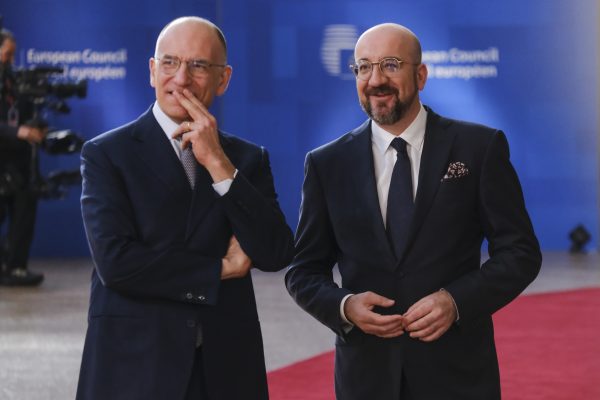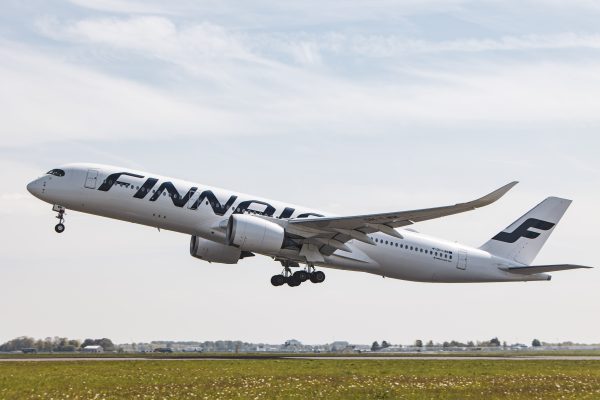At the D’Ieteren Volkswagen sales outlet in Brussels, longtime loyal customers are considering leaving the brand. Laura, the proud owner of two German VW cars, says she will switch to a Chinese-owned Volvo electric vehicle for her next purchase. Two of her friends recently bought Chinese EVs and she says, “They are pretty nice.”
In her 2023 State of the Union address, European Commission President Ursula von der Leyen blamed China for flooding the continent with artificially low-priced electric cars.
Subsequently, she announced the launch of an anti-subsidy investigation into imports of Chinese electric vehicles. If the EU determines that Chinese car prices are kept artificially low, it could impose punitive tariffs.
It’s a lose-lose for Germany’s famed carmakers. BMW, Mercedes, Porsche, and Volkswagen: either their robust sales in China will be jeopardized or they risk being outpaced in their home market by less expensive, next-generation Chinese electric vehicles.
The fate of Germany’s powerful carmakers underlines a broad dilemma for European business. Like many key European industries, from Louis Vuitton handbags to Dutch chipmaking machines, BMW, Porsche, Mercedes, and VW depend on exports to the giant Chinese market. Yet EU fears of subsidized Chinese production sweeping through Europe are mounting. Over the past few decades, subsidized Chinese solar panels, wind turbine parts, and other products have devastated key European industries.
The EU’s bloc’s trade deficit with China hit a record €396 billion last year, its highest ever. In a historic shift, Europe imported more cars in 2022 from China than it exported to the country.
Beyond the deficit, the EU joins the US in perceiving a risk to its key technologies. In October, Brussels published a recommendation for the EU’s economic security, identifying advanced semiconductors, artificial intelligence, quantum tech, and biotech as four technology areas that “are considered highly likely to present the most sensitive and immediate risks.”
Although no mention is made of electric vehicles, they are central to European hopes of combating climate change. In March, EU governments adopted a regulation banning the sale of gas cars by 2035.
Chinese manufacturers have seized the opportunity. According to the European Automobile Manufacturers’ Association, Chinese brands accounted for 4% of EU battery-electric sales in 2022, up from 0.4% in 2019. The reasons are simple: price and quality. A Volkswagen electric ID.7 is priced at €56,995. A similar-sized BYD Seal Design is 17% less expensive, costing €46,990. At the Munich Auto Show in September, former longtime executive in the Volkswagen Group and current Renault CEO Luca de Meo noted the gap, saying, “I think they are a generation ahead of us.”
German manufacturers are Europe’s most vulnerable because China is a crucial market. According to the German Association of the Automotive Industry, German automakers exported 254,607 cars to China, Volkswagen alone produced 3.2 million vehicles in the country in 2022. The day after von der Leyen’s speech, German car manufacturers’ stocks plummeted: BMW fell 2.08%, Mercedes-Benz 1.56%, and Volkswagen 1.83%. Germany’s automobile association said the subsidy probe could provoke a “backlash from China.”
Beyond autos, EU-China trade tensions are rising. European officials complain about a deteriorating environment for investors. During a recent visit to Shanghai, EU Trade Commissioner Valdis Dombrovskis said China’s new foreign relations law and its newly broadened counter-espionage law were of “great concern.” The EU’s top foreign policy official Josep Borrell visited Beijing in October and warned that public sentiment in Europe could turn more protectionist if the region’s trade deficit with China is not reduced. This month, the EU’s Internal Markets Commissioner Thierry Breton will visit Beijing and Hong Kong.
How might a trade war be avoided? The EU could allow Chinese manufacturers unencumbered access to the European market in exchange for German manufacturers’ unencumbered access to work with and learn from Chinese manufacturers, argues Daila Marin, a Professor of International Economics at the School of Management of the Technical University of Munich.
That solution might be a win-win — or it might just give China a road to race ahead of German cars on the autobahn. As long as Chinese subsidies risk creating an uneven competitive road, German carmakers and the rest of European industry face a bumpy journey.
Della Johnson is an intern at CEPA’s Digital Innovation Initiative.
Bill Echikson is a non-resident CEPA Senior Fellow and editor of Bandwidth.
Bandwidth is CEPA’s online journal dedicated to advancing transatlantic cooperation on tech policy. All opinions are those of the author and do not necessarily represent the position or views of the institutions they represent or the Center for European Policy Analysis.





